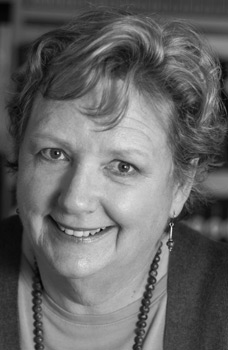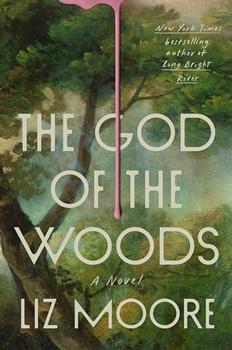
Susan Rivers talks about the true story that inspired her first novel The Second Mrs Hockaday, set in South Carolina during the Civil War.
Voices, an essay by Susan Rivers
In the summer of 2014, I was in the library near my home in rural South Carolina. I was doing research for a book I'd been trying to write on and
off (mostly off ). It can be a hellish experience for a writer when no amount
of work on a project pays off in terms of the story taking flight, and that was
the case with my draft about a middle-aged woman living on a farm during
the Civil War. I seemed unable to locate the nexus of the story, what Turkish
novelist Orhan Pamuk so aptly refers to as "the secret center."
On
that July day, however, locked in the tiny, stifling History Room, I
stumbled across the summary of an 1865 inquest. As soon as I read it, I knew
this was a story begging to be told in novel form. A Confederate soldier who
had been away from his teenaged wife for four years arrived home at war's
end to confront rumors that his bride had become pregnant while he was
away. It was alleged that she had given birth to a son who had been killed
and buried on their farm. The baby's remains were unearthed, and the angry
husband pushed to have his wife indicted for murder. The young woman
refused to speak about the baby or to name the father. She maintained this
silence for the rest of her life, even though she and her husband eventually
reconciled.
I was electrified by the plight of this young woman and by the extraordinary courage she must have possessed to face this ordeal alone in a war-
torn
world. I gathered up my things and ran home from the library with the voice
of a fictional soldier's wife, the second Mrs. Hockaday, already telling me her
story and an entirely new novel taking shape around her voice. The rest of
that summer is a blur in my memory. That's because writing this manuscript
was the most intensely concentrated, inspiring, and creatively engaging process I have experienced in all my writing years. Writing the first draft of
this novel, which I did in a period of twelve to fourteen weeks, was an
experience very similar to falling in love: I was unable to eat, sleep, or think
productively about anything but the beloved. Pamuk also says that "the task
of writing a novel is to imagine a world," and the longer I spent time with
Placidia Hockaday
—
as Holland Creek collapsed around her, the farm besieged by bummers, kidnappers, runaway servants, and slumming Charlestonians, and as her values shifted and she came to see the Confederacy's
lost cause for what it was
—
the more I felt I was closing in on the secret
concealed at the heart of her dilemma. It lay in Placidia's experience of the
war as a woman, as someone her son Achilles describes long after her death
as a lonely girl "whose spirit ruled her life, for good and ill."
I don't remember
consciously deciding how the novel would be written.
It began writing itself as it wished to be, in the form of linked found pieces:
the inquest record, letters to and from the main characters, and the diary
that Placidia kept as she struggled on her own at Holland Creek, entries
written on the backs of illustrations in her copy of
David Copperfield
. I suspect I was strongly drawn to the epistolary form by the dormant playwright
in me. A decade of my life was spent writing and working in regional theater,
and I think I wanted to steal some of the theater's intimacy for this novel by
allowing the characters' voices to speak directly into the reader's ear without
narrative filters. Even a first-person viewpoint was too limiting in this context, because the story extends beyond Placidia's death to include members
of the next generation who are strongly affected by her revelations and by the
legacy of the blue-eyed man who is her "darker kinsman."
At the center of the novel is the love story of Placidia and Gryffth Hockaday. They enter into their marriage with a recklessness born out of wartime
urgency, only to be parted almost immediately. Gryffth's duties as a field
officer in the 13th South Carolina regiment keep him far away in Virginia,
while back at Holland Creek, Placidia struggles to cope not only with the
endless tasks required in running a farm but with the disintegration of an
entire society. Like the heroes in the ancient epics, she is rewarded for her
journey of sacrifice and struggle with knowledge. But that knowledge comes
at a terrible price.
Gryffth pays dearly for his own survival on the bloody fields of Gettysburg and Spotsylvania, with Placidia telling her cousin Mildred that he
won't allow his suffering to have meaning." When he returns, the two of
them must find a way to regain trust and rebuild their lives in spite of their
damaged
hearts. They must also redefine their dependency on and kinship
with the enslaved people at Holland Creek, African-Americans who are
carving out new roles for themselves in the chaotic aftermath of the Civil
War. Placidia and Gryffth must reconcile themselves not merely to a changed
marriage, but to a changed world.
Writing is hard,
lonely work for the most part. But when it is fueled by
inspiration, and when the stories begin falling headlong onto the page like
treasures spilling from a buried chest, it is the most purely ecstatic experience
most writers are ever likely to experience. That might be why it's so difficult
to put a novel to rest once it's finally complete, accepting that the characters you've become so intimately familiar with will have to carry on without
you. Crouching beside Placidia in her room at dawn, scrubbing blood off
the walls before the servants arrive at her farmhouse, I felt the beauty, the
anguish, and the paradoxically fragile power of her existence in my fictional
world. For that short time before the sun rose over the ridge, I shared the
secret center with her. And it was heaven.
Unless otherwise stated, this interview was conducted at the time the book was first published, and is reproduced with permission of the publisher. This interview may not be reproduced or reprinted without permission in writing from the copyright holder.




Your guide toexceptional books
BookBrowse seeks out and recommends the best in contemporary fiction and nonfiction—books that not only engage and entertain but also deepen our understanding of ourselves and the world around us.